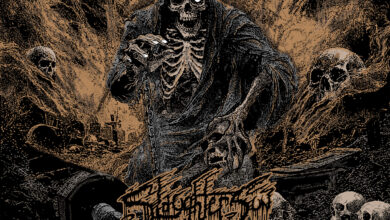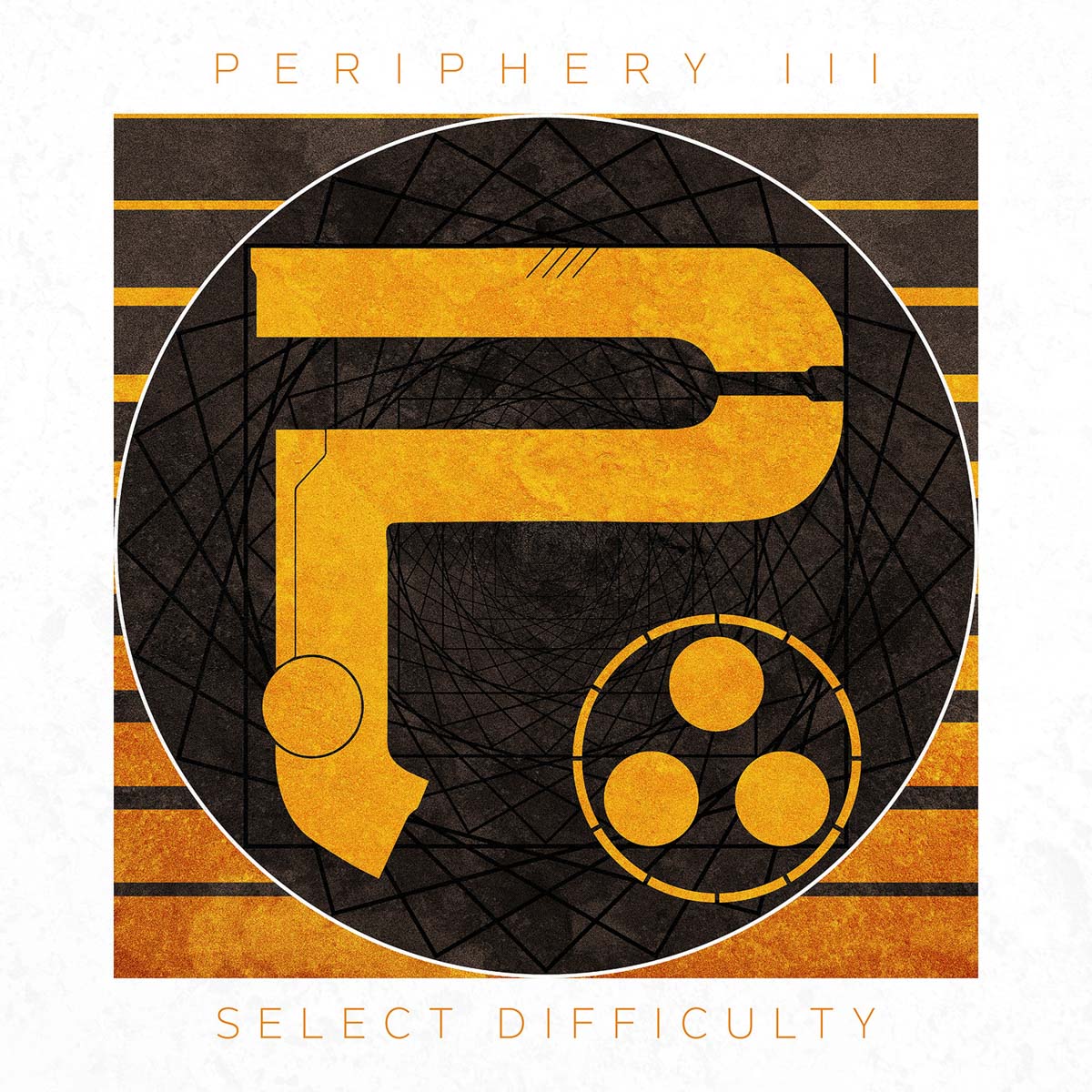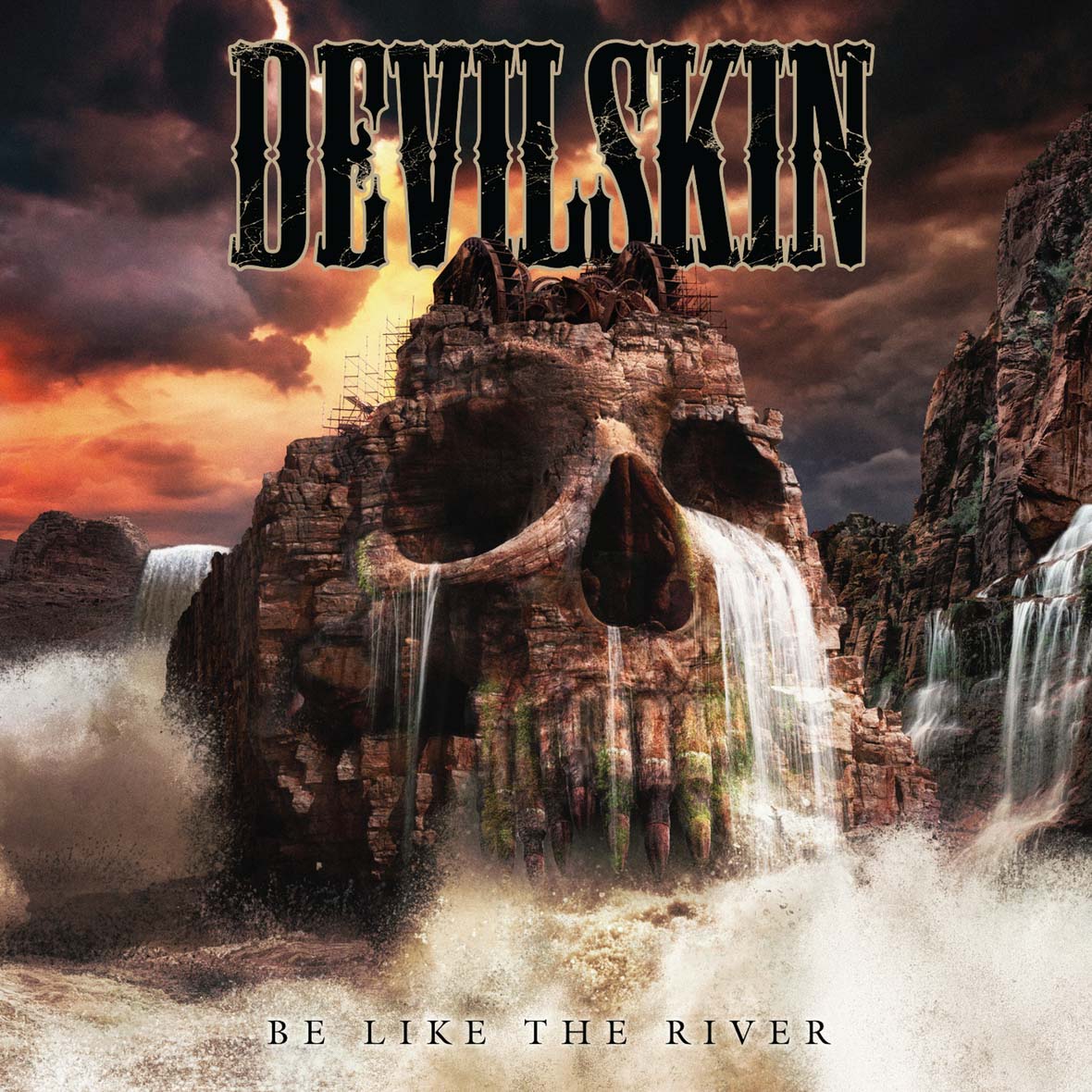Deathgrip isn’t a perfect album: some of the same old metalcore flaws do pop up…None of that matters, though, because everything Fit For A King has ever done well, they do better on Deathgrip…
It’s hard for me to judge the actual popularity of Arkansas-based metalcore act Fit For A King. I first heard about them while living in Springfield, Missouri, a 3 to 4-hour drive from FFAK‘s base of operations. Subsequently, they played in Springfield, a lot, and I have seen them grow from a talented but green band into the live behemoth they are today. I’m not a diehard metalcore fan (half the genre sounds bland and lifeless to me, including quite a few prior Fit For A King songs), but it’s safe to say I’m a fan. I wanted to clarify this, because nothing up till now prepared me for their fourth full-length, Deathgrip.
Deathgrip isn’t a perfect album: some of the same old metalcore flaws do pop up on songs here, and in a couple cases even relegate tracks to filler status. None of that matters, though, because everything Fit For A King has ever done well, they do better on Deathgrip, especially the vocals: both lead/unclean vocalist Ryan Kirby and clean vocalist Ryan “Tuck” O’Leary deliver the best performances of their lives here on nearly every song.
Opening up with a short instrumental intro, the band leap into “Pissed Off,” and the title isn’t kidding. This is the heaviest thing Fit For A King have ever written, with a grinding, almost subsonic riff that’s more Meshuggah than metalcore. Before that riff even comes in, though, Ryan Kirby roars his way through an almost acapella rendition of the nastiest heavy chorus of the year. He has always been an excellent vocalist, but his performance on Deathgrip has stepped up to near god tier. His range has vastly improved, able to transition effortlessly between a mid-range fry, a deeper growl than he’s ever hit before, or a new death-metal influenced higher shriek; wait for the 13-second hold in this higher register. For good measure, he follows that with an equal but opposite deep pig squeal in the outro. Next is first single, and first filler track, “Dead Memory.” The black metal intro is intriguing (and the drums hold onto that a little longer, lending the first part of the verse a nice flair), but the meat of the song is the same tune we’ve heard from dozens of similar bands for the last 5-6 years. The chorus is competent, but nothing special, and even a guest verse from August Burns Red frontman Jake Luhrs doesn’t do much for the song; Ryan Kirby’s vocals have gotten so good he actually delivers a much heftier punch than his more famous counterpart on this track. The back-and-forth between the clean and unclean vocals on the outro is worth a listen, but isn’t enough to make this a standout.
 However, “Cold Room” does standout – with a lightning-quick, mathy guitar lead filtered through enough effects pedals to almost make it sound like it’s coming from an 80s arcade cabinet (Galaga, maybe?). The song structure is standard metalcore (rhythm based screamed verses, open chords and poppy clean vocals on the chorus), but the song is written so well it still sounds fresh. “Cold Room” doesn’t reinvent the wheel, but it does put some very shiny rims on it (please forgive me for that analogy, because I can’t). “Disease” is a work in contradiction; the vocals are some of the angriest I have ever heard, and every single line is delivered like Ryan Kirby is trying his best to blow his voice out before the song ends, but the music is utterly forgettable, aside from a record-skip one beat pause in the breakdown that is going to catch a LOT of people off guard live. “Shadows And Echoes” has a similar overall feel as “Cold Room.” The riff is heavier but a little less distinct, and the chorus is just a little hookier (which makes it a strong contender for the best chorus hook of the year), and all told it’s just a damn good song, perfecting the elements of the genre.
However, “Cold Room” does standout – with a lightning-quick, mathy guitar lead filtered through enough effects pedals to almost make it sound like it’s coming from an 80s arcade cabinet (Galaga, maybe?). The song structure is standard metalcore (rhythm based screamed verses, open chords and poppy clean vocals on the chorus), but the song is written so well it still sounds fresh. “Cold Room” doesn’t reinvent the wheel, but it does put some very shiny rims on it (please forgive me for that analogy, because I can’t). “Disease” is a work in contradiction; the vocals are some of the angriest I have ever heard, and every single line is delivered like Ryan Kirby is trying his best to blow his voice out before the song ends, but the music is utterly forgettable, aside from a record-skip one beat pause in the breakdown that is going to catch a LOT of people off guard live. “Shadows And Echoes” has a similar overall feel as “Cold Room.” The riff is heavier but a little less distinct, and the chorus is just a little hookier (which makes it a strong contender for the best chorus hook of the year), and all told it’s just a damn good song, perfecting the elements of the genre.
“More Than Nameless” struggles a little. The Morse code-like intro riff recalls frequent tour-mates Silent Planet, and the choppy pre-chorus is well executed, but the chorus instrumentals are flat, despite a decent vocal delivery. “We Are All Lost” limps through the verses (once again though, the vocals on this album are flawless, and Kirby rips through multiple variations of his far-reaching snarl with ease), but the pre-chorus and chorus are strong enough to give it more than just a pass. The pre-chorus is a song-carrying hook all by itself, and then the chorus aims even bigger, sounding like a blend of Architects and The Amity Affliction. “Unclaimed, Unloved” has a killer (if incredibly simple) guitar hook and a less than memorable vocal delivery for once. It doesn’t do anything wrong, per se, but placed up against the other tracks on this album, it doesn’t do much right, either. There’s a Fallujah-esque tapping scale that floats around for a bit and sounds cool, but it doesn’t do much to elevate the song.
At this point it was hard to tell what my verdict on the album would be, but the final two tracks easily settled that. “Stacking Bodies” is violent in every way: musically, vocally, lyrically, this is one of the sludgiest, heaviest songs in the FFAK arsenal, and yet again Ryan Kirby demolishes this song. The music is a match for him, with a hammering chorus riff that makes this sound a hell of a lot like early Demon Hunter (the confrontational, take-the-fight-to-the-devil lyrics just reinforce that notion), and finale and title track “Deathgrip” saves some of the best for last. The relatively gentle verses feature a surprisingly gorgeous clean vocal from Ryan Kirby, drifting through Sleepwave territory. The calm before the storm ends very abruptly when the chorus comes in, reversing the genre-standard “heavy verse, poppy chorus” trope. That’s not to say the chorus isn’t hooky, because it is. Even filled to the brim with throat-ripping screams, the guitar and vocal patterns mesh perfectly to create a song that is simultaneously as catchy as any rock song on the radio without sacrificing a single bit of aggression. They even toss a minimalist Bring Me The Horizon-flavored synth line over the breakdown and final chorus, blending arena metal and sludge to great effect.
As an album, Deathgrip isn’t perfect. It’s familiar, often too familiar. When that’s the only noticeable problem with an album this strong, though, that familiarity is easily forgivable. The long and short of it is, yes, a couple tracks here are weak, but more than twice that many songs are highlights, not just of the album, or even the band, but the genre as a whole. That’s worth a little filler.







